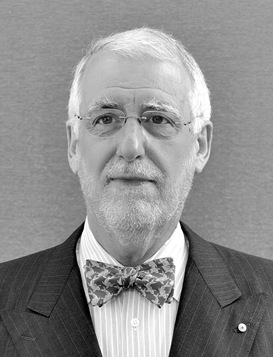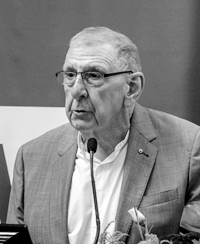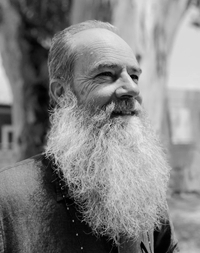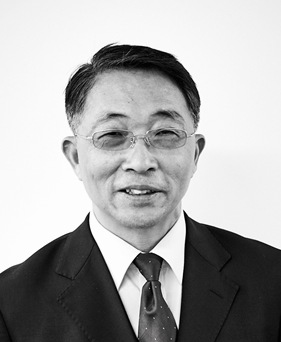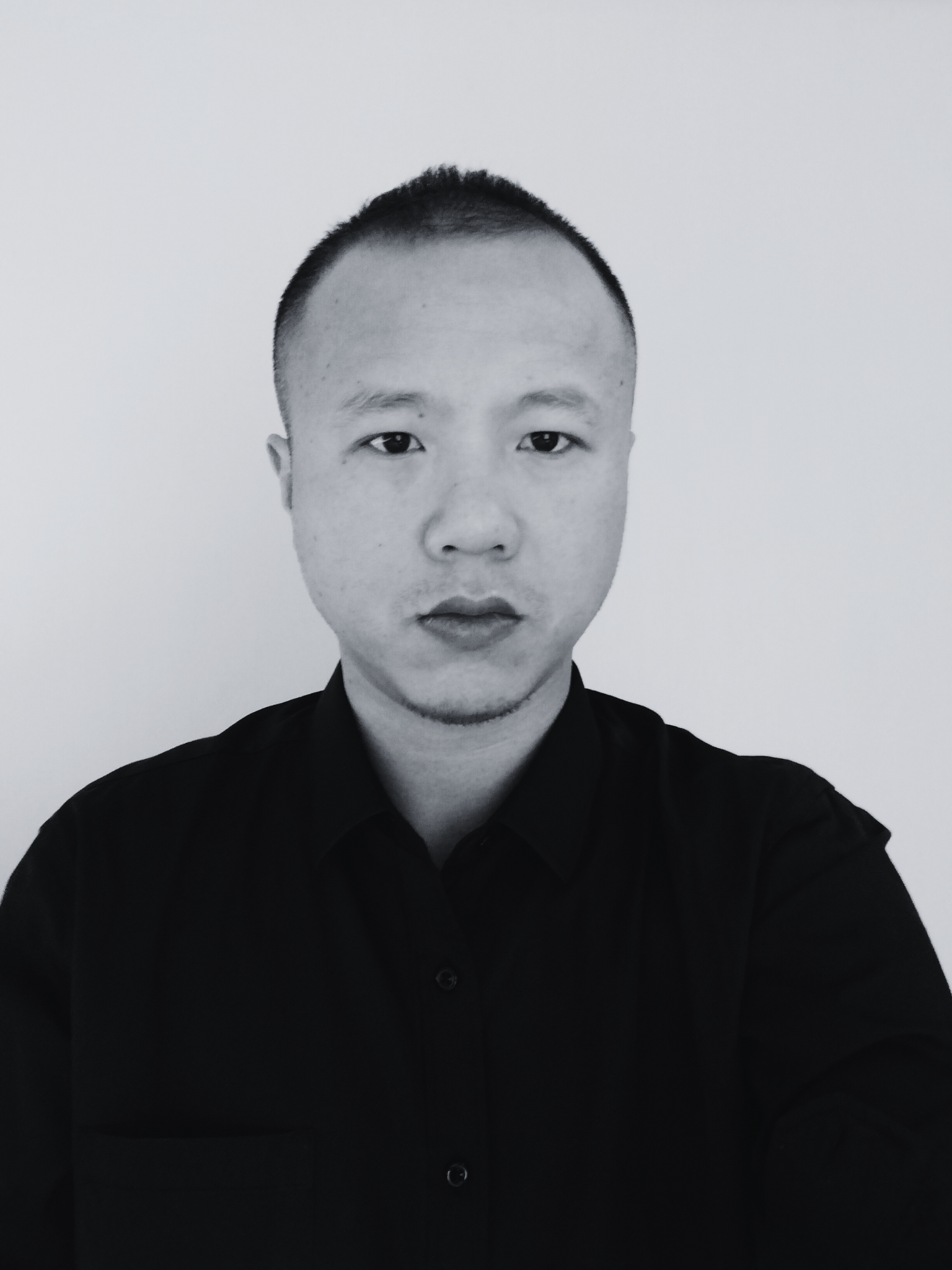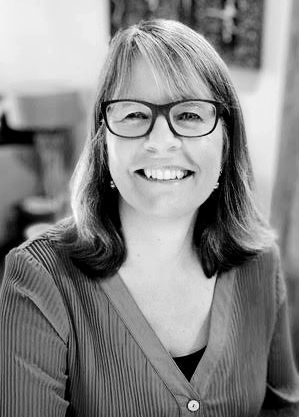People
Positioned within Western Sydney University, the Institute consolidates and builds on a wide range of existing teaching and research expertise in Chinese literature, translation, interpretation, music composition and history within the Institute for Culture and Society, School of Education and School of Humanities and Communication Arts.
The Institute for Australian and Chinese Arts and Culture had Professor Jocelyn Chey AM as its Founding Director. The Institute is supported by Research and Postdoctoral Research Fellows, Key Researchers and Professional Staff. The broad connections made by successive Directors in both Australia and China will help attract world class research teams and expertise to the Institute.
Director: Professor Jing Han
Professor Jing Han is a leading expert in translating Chinese culture, intercultural communication, audiovisual translation and media accessibility. She is highly regarded for her significant and original contributions to the field and industry. Jing is also known for intercultural competence, strong leadership and innovative thinking.
Jing received her PhD in English literature from the University of Sydney in 1995. In 1996 she joined the public broadcaster SBS TV Australia as Mandarin subtitler. Since 2006 she has been the Chief Subtitler and Head of the SBS Subtitling Department, leading the Department to a great international success and fame. Over the last 23 years, Jing has subtitled over 300 Chinese films and documentaries including Crouching Tiger, Hidden Dragon, Lust, Caution, Wedding Banquet, Hero, Under the Hawthorn Tree, Not One Less, Ash Is the Purest White, I Am Not Madam Bovary, Let the Bullet Fly, Sacrifice, The Blue Kite, Crazy Stone, Shanghai Dream, A World without Thieves, Springtime in a Small Town, Beijing Bicyle etc. In the last six years, Jing has been the leading subtitler of the most popular Chinese TV show If You Are the One. Her critically acclaimed English subtitles have played a key role in creating a cult following in Australian audiences and setting the record of the longest showing non-English series in Australian broadcasting history. The show’s cultural impact and influence on Australian audiences is also unprecedented. So far Jing has subtitled over 400 episodes of the show as well as other Chinese TV series. Jing has been frequently invited to speak at conferences and has delivered lectures at over 30 universities across the world. In recognition of her outstanding contributions to the cultural exchange between Australia and China, she was included in the 45 Stories published by the Australian government. She is the executive producer of the English edition of 100-episode documentary series A History of China commissioned by CGTV China.
Jing joined Western Sydney University in 2006 and has been a key faculty member in its flagship program, Translation & Interpreting, in the School of Humanities and Communication Art. She has designed and taught a range of translation and interpreting courses including Audiovisual Translation and Literary Translation for postgraduates. She is a PhD supervisor, supervising PhD candidates in a range of research areas including translation and interpreting studies, multimodality and media studies, Chinese culture and literature translation, Traditional Chinese Medicine (TCM) translation and intercultural communication. Jing has been Associate Dean for International at School of Humanities and Communication Arts and played a pivotal role in establishing partnerships with many universities in mainland China, Taiwan and Europe. Jing is the English translator of a modern Chinese classic Educated Youth by multi-award winning author Ye Xin, published by Giramondo in 2016. She is also a highly accomplished professional interpreter for live interpreting at significant cultural and literary events.
Speech by Professor Jing Han: Don’t Take Yourself for a Shallot (opens in a new window)
Professor Jing Han - The Year of the Tiger (PDF, 144.09 KB) (opens in a new window)
VicForum 2022: Technology and the Future of Humanity and Languages (opens in a new window)
Interview on ABC News (opens in a new window)
Australia China Stories (opens in a new window)
OzAsia Festival Talk: No (Under) Standing Any Time (opens in a new window)
Founding Director & Adjunct Professor: Jocelyn Chey AM FAIIA
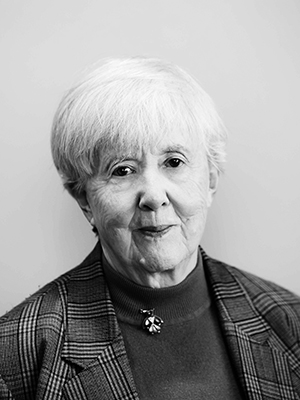
Australia-China Institute for Arts and Culture Foundation Director, Professor Jocelyn Chey AM, has already made an outstanding contribution to Australia's diplomatic service and to academic life.
For more than 20 years she was a senior figure within the Australian Department of Foreign Affairs and Trade, where she was instrumental in helping lay the foundations for trade and cultural relations between China and Australia.
Professor Chey began her career as lecturer in Chinese studies at the University of Sydney. She then moved to Canberra in 1973, when Australia first established diplomatic relations with China.
Holding numerous roles within the Departments of Trade and Foreign Affairs, she worked to further Australia-China relations and was posted three times in China and Hong Kong.
Professor Chey's many distinguished diplomatic appointments include Cultural Counsellor in the Australia Embassy in Beijing (1975–1978); Senior Trade Commissioner in the Australian Embassy in Beijing (1985–1988); and Consul-General for Australia in Hong Kong (1992–1995).
Professor Chey was also the key administrative officer in the Australia-China Council at the time it was founded in 1979. From 1988–1992 she worked outside the public sector, as Director of the China Branch of the International Wool Secretariat.
Now retired from the public service, Professor Chey lives in Sydney. Her most recent role before joining Western Sydney University, was Visiting Professor at the University of Sydney, where she was a consultant on Australia-China relations.
Professor Chey is a frequent speaker and lecturer on Chinese affairs and history, and speaks fluent Mandarin and Cantonese Chinese.
She was awarded the Australia-China Council Medal for contributions to the development of relations between Australia and China in November 2008, was made a Member of the Order of Australia (AM) in January 2009 and a Fellow of the Institute of International Affairs (FAIIA) in November 2009.
Yes for the Voice: How to translate into Chinese (opens in a new window)
Adjunct Professors
Professor Carrillo Gantner ACACIAC Adjunct Professor Carrillo Gantner studied at University of Melbourne, Stanford University, and Harvard University and later became a professional actor. He was the Cultural Counsellor at the Australian Embassy in Beijing from 1985 to 1987, and served as Chairman of The Asialink Centre at the University of Melbourne from 1992 to 2005. He served as a founding Advisory Board member for The Centre of China in the World at ANU from 2011 to 2013. He was the President of The Myer Foundation from 2005 to 2009 and has been the Chairman of Sidney Myer Fund since 2004. He is the godfather of the new Asia Pacific Triennial of Performing Arts (‘Asia TOPA’) in Melbourne. In 2006, the University of New South Wales awarded Professor Gantner an Honorary Doctorate of Letters for services to the arts and the community. In 2008, he was elected an Honorary Fellow of The Australian Academy of the Humanities. In 2014, the Ministry of Culture of the People’s Republic of China awarded Professor Gantner their highest honour for foreigners: “The Cultural Exchange Contribution Award” for his outstanding contributions to China’s cultural exchanges with the world. This Award was presented by a Vice Premier of China in a ceremony at the Great Hall of the People in Beijing. Carrillo has written for various journals and other publications, always working to enhance Australia’s reputation as a constructive partner in the Asia Pacific. In April 2017, he was appointed Adjunct Professor of the Australia-China Institute for Arts and Culture, Western Sydney University, and in January 2019, he was appointed to a Companion in the Order of Australia (AC). |
|
Professor Stephen FitzGerald AO FAIIAStephen FitzGerald began his professional career as a diplomat, studied Chinese and became a China specialist. As China specialist he has been diplomat, academic, think tank director and expert consultant to government and business. He was China adviser to Gough Whitlam in opposition and as Prime Minister, Australia’s first ambassador to the People’s Republic of China, and later, at the beginning of China’s opening to the outside world, established the first private consultancy for Australians dealing with China, which he ran until 2008. He chaired the 1980s committee of the Asian Studies Association of Australia which shaped the Association’s policy for Asian Studies and Languages in Australian education and later became chair of the government body established to address that policy, the Asian Studies Council. This Council wrote a strategy for Asia in Australian education. He subsequently founded the Asia-Australia Institute, dedicated to making Australia part of the Asian region through think tank activities and ideas-generation by regional leaders meeting in regular forums in the region’s capitals. He chaired the government’s Committee to Advise on Australia’s Immigration Policies, which wrote the landmark report, Immigration. A Commitment to Australia. He has been advisor to the Federal and Northern Territory governments, and the governments of Australia, Britain, Denmark and others on governance-related aid in China and Southeast Asia. He is currently a Distinguished Fellow at the Whitlam Institute at Western Sydney University, a Board Member of China Matters, an independent policy initiative dedicated to raising the quality of public discussion of China and Australia’s relations with it, and Vice President of the organizing committee for a Museum of Chinese in Australia. |
|
Professor Su-Ming WongSu-Ming is an investment professional with over 35 years’ of direct investment, international corporate advisory and merchant banking experience. He co-founded CHAMP Ventures in 2001. CHAMP Ventures is a leading Australian mid-market private equity funds manager with over $750 million funds under management. He has been chairman/director of over 20 CHAMP Ventures portfolio companies. CHAMP Ventures’ investment thesis is to partner entrepreneurial Australasian companies to maximize their growth potential. Su-Ming is passionate about strengthening the cooperation between Australia and Asia. In the past 35 years, he has developed meaningful business relationships with a wide group of Asian companies including sovereign investment companies, private equity funds managers and industrial conglomerates. Throughout his career as an investment professional, Su-Ming has been strongly committed to supporting innovation. He was instrumental in setting up AMWIN Innovation Fund, one of Australia’s most successful venture capital funds. He is also an active Angel Investor with investments in several young innovative Australian start-ups. In 2018, Su-Ming was appointed as a Professor of Practice at the UNSW Business School, UNSW. Mr Wong is chairman of Access Macquarie Limited (Macquarie University), a director of Asia Society Australia and Sydney Writers’ Festival, Member of UNSW Business School Advisory Council and a former Governor of American Chamber of Commerce. He also chairs the Advisory Council of China Matters, an independent think tank focusing on Australia-China matters. He was a member of the Council of University of Technology, Sydney (2010-2014) and the Council of VisAsia at the NSW Art Gallery (2009-2017). He was a founding director of National ICT Australia, a center of excellence in ICT research, a member of the Industry Research and Development Board and a director of Unisearch. He was also a council member of the Australian Venture Capital Association and a member of the South Australian Government’s Venture Capital Board. He holds a Master of Engineering from the University of Canterbury, New Zealand and a Master of Business Administration from the Australian Graduate School of Management, UNSW. | 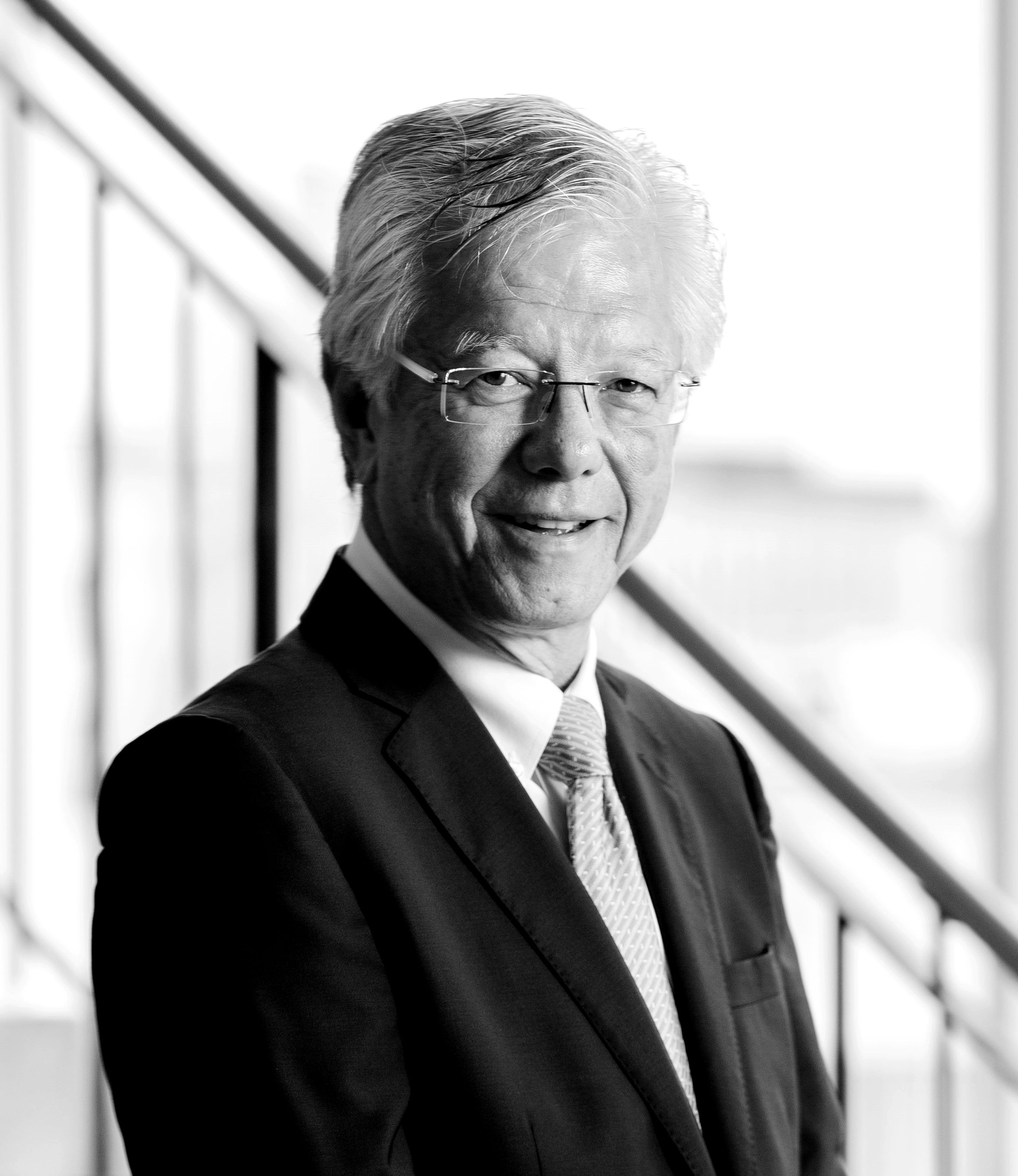 |
Professor Michael WilliamsMichael Williams obtained his doctorate from the University of Hong Kong in 2003. Michael has taught at Beijing Foreign Studies and Peking Universities and is currently the historian on the team of Western Sydney University’s China-Australia Heritage Corridor project researching the historical connections between the built environment of the ancestral villages of people from Zhongshan County, Guangdong Province China and Australia. Born in Sydney, previous to attending HKU Michael had lived in Japan and Taiwan before taking up his studies of Chinese Australian history and heritage and Chinese immigration history. After publishing his Chinese settlement in NSW – a thematic history for the Heritage Office of NSW in 1999, Michael worked with the late Henry Chan to found the Chinese-Australian Historical Society of which Michael is currently the historical consultant. A strong believer, like Henry Chan, in the importance of community research and involvement Michael is also the author of Returning Home with Glory (HKU Press, 2018). This work utilises oral interviews and other research in the villages of south China to trace the history of peoples from China’s Pearl River Delta around the Pacific Ports of Sydney, Hawaii and San Francisco. Michael has had a life-long and wide ranging interest in history. In addition to his research of Chinese-Australian migration history and a thematic study of the history of the NSW town of Dungog, Michael has also done a number of histories for heritage and archaeological assessments. His published books include a unique social history of Australia’s oldest cinema, and in 2019 he was instrumental in Sydney University Press’s bilingual publication of a translation (by Ely Finch) of the first novel of Chinese Australian literature, The Poison of Polygamy. His latest book is Australia’s Dictation Test: The Test it was a Crime to Fail, (Brill, 2021). Continuing his conviction that history should not be confined behind academic firewalls or restricted to lovers of footnotes Michael is working on a web based database project entitled Scattered Legacy which will undertake a national survey of items related to Chinese Australian history and explain their connection to the wider history of Chinese in Australia and of Australia itself. |
|
Professor David Walker AMDavid Walker was the inaugural BHP Chair of Australian Studies at Peking University (2013-2016). He has written extensively. Apart from Stranded Nation: White Australia in an Asian Region (UWA Publishing 2019) and Anxious Nation: Australia and the Rise of Asia, 1850 to 1939 (UQP 1999), he is the co-editor with Agnieszka Sobocinska of Australia’s Asia: From Yellow Peril to Asian Century (UWA Publishing, 2012). His Asia-related essays have appeared as Encountering Turbulence: Asia in the Australian Imaginary (Readworthy, 2013). In a different vein he has written a ‘personal history’, Not Dark Yet (Giramondo, 2011) exploring family, memory and his experience of becoming ‘legally blind’. A Chinese translation (光明行) by Li Yao was published in 2014. David Walker is an Alfred Deakin Professor, Deakin University and an Honorary Professorial Fellow at the Asia Institute, University of Melbourne. He is a Fellow of the Academy of the Social Sciences in Australia and the Australian Academy of the Humanities. He received an AM in 2018. | 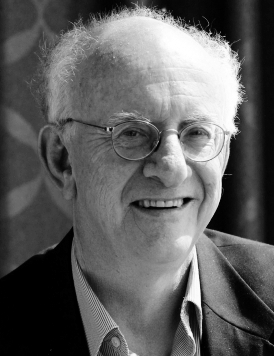 |
Professor Li YaoVisiting Professor of Australian Studies Centre, Beijing Foreign Studies University. Doctor of Letters (honoris causa) awarded by the University of Sydney in 2014, Doctor of Letters (honoris causa) awarded by the Western Sydney University in 2019, Senior Translator. After graduating from Inner Mongolian Normal University in 1966, Li Yao worked as a writer and editor at journals in Inner Mongolia until his appointment as Professor of English at the Training Center of the Ministry of Commerce, Beijing, in 1992. He began his literary translation career in 1978. In the past 42 years, he has translated and published 60 British, American and Australian literature, culture and history works. He became a member of the Chinese Writers’ Association in 1986, specialising in literary translation. He won the Australia-China Council’s inaugural Translation Prize in 1996 for The Ancestor Game by Alex Miller, and won it again in 2012 for Carpentaria by Alexis Wright, both Miles Franklin-winning novels. He was awarded the Council’s Golden Medallion in 2008 for his distinguished contribution in the field of Australian literary translation in China. He was awarded Certificate of Achievement by FASIC, in recognition of his lifelong contributions to the art of translation and to brining Australian Literature to Chinese readers in 2018. 李尧,资深翻译家,悉尼大学荣誉文学博士、西悉尼大学荣誉文学博士、北京外国语大学澳大利亚研究中心客座教授、西悉尼大学人文与交流艺术学院兼职教授、中国作家协会会员。从事文学翻译四十余年,翻译出版英美澳大利亚文学、文化、历史著作五十余部,其中多部作品获奖。2008年获澳大利亚澳中理事会杰出贡献奖章。2018年获在华澳大利亚研究基金会(FASIC)终生成就奖。 | 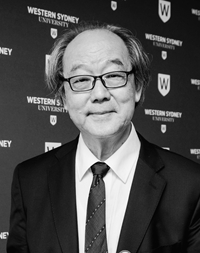 |
Professor Tsan-Huang TsaiHaving completed his Bachelor of Arts in Chinese music performance at Chinese Culture University, Tsan-Huang Tsai pursued further studies in ethnomusicology, obtaining a Master of Music degree from the University of Sheffield and later earning his Master of Philosophy and Doctor of Philosophy degrees in anthropology from the University of Oxford. With his extensive academic background, Tsai has held teaching or research positions at various institutions, including Nanhua University in Taiwan, the Chinese University of Hong Kong, the Australian National University, Quanzhou Normal University, and the University of Adelaide. Tsan-Huang Tsai's research interests span across a wide range of disciplines, encompassing ethnomusicology, organology, anthropology, and Chinese/Taiwanese studies. He has authored several notable works, such as Captured Memories of a Fading Musical Past: The Chinese Instrument Collection at the Music Department of the Chinese University of Hong Kong (Yuan-Liou Publishing Co, 2010) and Listening to China's Cultural Revolution: Music, Politics, and Cultural Continuities, co-edited with Paul Clark and Laikwan Pang (Palgrave Macmillan, 2016). Additionally, Tsai has published over thirty articles in both Chinese and English, delving into topics such as the Chinese seven-stringed zither, Buddhist music, the interplay between music and politics in Taiwan and China, as well as Chinese cultural and musical performances in Australia. Throughout his career, Tsan-Huang Tsai has been honoured and supported with numerous scholarly awards, including the Andrew W. Mellon Fellowship at The Metropolitan Museum of Art, the CPI Fellowship at the National Gugak Center, the Post-doctoral Research Fellowship at The Australian Centre on China in the World, the Affiliated Fellowship at the International Institute for Asian Studies, the Endeavour Fellowship from the Australian Government, the Visiting Fellowship at ANU's Humanities Research Centre, the PhD Fellowship from the Chiang Ching-kuo Foundation, and the Gribbon Award from the American Musical Instrumental Society. | 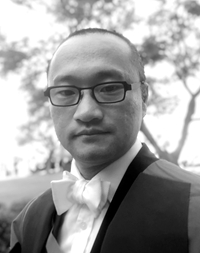 |
Professor Labao WangProfessor Labao Wang had a PhD in Australian literature from the University of Sydney, Australia. He was Professor of English at the School of Foreign Languages, Soochow University, China, where he also served as Director of Australian Studies Centre, Deputy Dean and Dean from 2002-2017. He was Director of the Australia-China Institute for Arts and Culture from November 2017 to June 2019. Professor Wang's research interests include Anglo-American literature and postcolonial literatures in English, Australian literature, literary criticism and theory, short fiction as a literary genre, literary semiotics and language teaching. He has published widely in China and overseas. He has worked on national research projects like “Traditions in Australian Literary Criticism” and “Postmodern Experiments in Australian Fiction”, and his books include A History of Australian Literary Criticism (China Social Sciences Press, 2016, included in China’s 2015 National Achievements Library of Philosophy and Social Sciences), Australian Short Fiction in the 1980s: Continuity and Change (Soochow University Press, 2000) and The Purest Art: Euro-American Theories of the Short Story as a Literary Genre (Southeast University Press, 2006). He’s also the co-translator of John Crowe Ransom’s The New Criticism (Jiangsu Education Press, 2006) and Jeffrey Archer’s novel, Sons of Fortune (Yilin Press, 2002). Professor Wang is currently Vice President of the Chinese Association for Language and Semiotic Studies, the Chinese Association of Australian Studies in China, and the Chinese Association for Studies in World Literatures Written in English. And he was also the founding editor of the international English language journal Language and Semiotic Studies (2015-16). |
|
Adjunct Fellows
Dr Guan WeiDr Guan Wei has a significant international reputation as a contemporary artist whose work crosses cultural and political borders, specifically between Australia and Asia. A Chinese national who migrated to Australia in 1989, his practice which spans more than 30 years draws on his personal experience of both Chinese and Australian culture, as well as an informed socio-political awareness and knowledge of art history. With a consummate ability to create work at once light in tone and profound in message, his prolific creative output has consistently examined complex social issues underpinned by humility and a deep respect for humanity. Across painting, sculpture and installation, his work conveys profound stories of loss, migration, identity, and notions of boundaries and place, interweaving an understanding of tradition and the past in the face of overwhelming global change today. Guan WeiI was born 1957, Beijing, China. In 1989, three years after graduating from the Department of Fine Arts at Beijing Capital University, he came to Australia to take up an artist-in-residence at the Tasmanian School of Art. He was invited to undertake two further residencies: one at the Museum of Contemporary Art in Sydney (1992), the other at the Canberra School of Art, Australian National University (1993). Since then he obtained many grants, including Australia Council’s grant for Greene St New York studio in 2003, Cite International des Arts Paris in 2007 & Fellowship in 2008-2009. In 2021, Guan Wei received an Honorary Doctorate of Creative Arts from Western Sydney University. Guan Wei has won many awards, including the 2015 Arthur Guy Memorial Painting Prize, Bendigo Art Gallery, 2002 Sulman Prize, Art Gallery of New South Wales, and was selected for the prestigious 2009 Clemenger Contemporary Art Award, National Gallery of Victoria. Solo exhibitions include: Guan Wei: A Case Study, Museum of Art & Culture Lake Macquarie, 2020; Guan Wei: MCA Collection, MCA, Sydney, 2019; Guan Wei: Essence, Energy, Spirit, IAC, WSU, Sydney, 2019; Cosmotheoria, White Box Art Centre, Beijing: Salvation, ARC ONE Gallery, 2014; Archaeology, ARC ONE Gallery, 2014; Spellbound, He Xiang Ning Art Museum, OCT Contemporary Art Terminal, Shenzhen, China, 2011; The Enchantment, ARC ONE Gallery, 2012; Other histories: Guan Wei’s fable for a contemporary world, Powerhouse Museum, Sydney, 2006–07; Looking, Greene St Studio, New York, 2003; Zen Garden, Sherman Contemporary, Sydney, 2000; and Nesting, or the Art of Idleness 1989–1999, MCA, Sydney, 1999. | 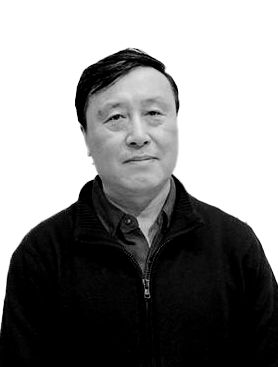 |
Visiting Fellow
Dr Gavin LeeDr Gavin Lee is Assistant Professor of Music at Soochow University (PRC). His research on decolonial and queer theory, Sinophone musics and music epistemology, and global music history and global musical modernisms, appear in Journal of the Royal Musical Association, Current Musicology, Music Theory Spectrum, and Music Analysis. He is the author of Estrangement from Ethnicity: Music and Sinophone Alienation (forthcoming, University of Michigan Press) and has edited two books, Queer Ear: Remaking Music Theory (forthcoming, Oxford) and Rethinking Difference in Gender, Sexuality and Popular Music (Routledge). In recent years, Lee has presented guest lectures on three continents at universities in the US, Australia, and Taiwan. Aside from Sinophone topics, specifically on racial alienation in music, Lee’s decolonial research encompasses the critique of distortionary anti-racist stereotypes such as the “resistive ethnic other” in US-centric diversity frameworks (how likely is it that global others are resisting Western music in US undergraduate music curricula, rather than colonial histories of slavery and genocide?), as well as, more generally, a decolonial epistemology of music that departs from North American knowledge structures. Other projects include the concept and historiography of global musical modernisms, conceived as the expansion of the temporal, genre, and geographic boundaries of Western musical modernism; and a range of queer studies, including queer alienation, queer listening, and queer ambiguity. In conjunction with his research, Lee has headed several study groups dedicated to research on and advocacy for the marginalized: the AMS Global East Asian Music Research study group, SMT Global Interculturalism and Musical Peripheries interest group (both of which he co-founded), as well as the SMT Queer Resource Group and the SEM Gender and Sexualities Task Force. Lee has also served on the SMT LGBTQ+ standing committee and the AMS LGBTQ study group committee. |
|
Professional Staff
Senior Project OfficerSallie Beaumont, originally from the UK, speaks Italian and Mandarin Chinese after studying and working in both Italy and China for many years. She is a very capable problem-solver, project manager and event organiser with excellent communication skills. In the eighties she lived in Rome where she attended Rome University and obtained a BA (Hons) in Foreign Languages and Literature (Chinese major). In 1988 she moved to Beijing for a decade, studying at the Beijing Language Institute (now the Beijing Language and Culture University) for two years and then working for an Italian engineering company as an interpreter and project manager. Sallie has a strong understanding of dealing with intercultural challenges and has designed and delivered training modules to help international organisations deal with cultural difference. She has also been a teacher of both English and Chinese, written articles on art and culture, coordinated a weekly jazz night at a Beijing tea house, and worked with Chinese artists to bring their work to the attention of western audiences. In 1998 Sallie moved to Australia and became the Executive Director of the NSW Branch of the Australia China Business Council for five years before consulting as a cross-cultural trainer. Sallie lived in New York from 2010-2018 where she narrated dozens of audiobooks for students with impaired vision and learning differences at Learning Ally while tutoring children reading below grade level at Read 718. Upon her return to Australia Sallie served on the board of the Australia-China Institute for Art and Culture (now renamed Institute for Australian and Chinese Arts and Culture) at Western Sydney University from 2019-2022. In 2020 she launched an oral history business called Memory Box Audio. |
|
Project Officer/Executive AssistantYanni Liu is the Project Officer/Executive Assistant at the Institute for Australian and Chinese Arts and Culture. She holds a Master of Museums and Collections from the Australian National University and Bachelor of Art History from the China Academy of Art. She has had extensive experience working in cultural institutions, including the Aurora Museum in Shanghai and in the last few years at the National Dino Museum in Canberra. | 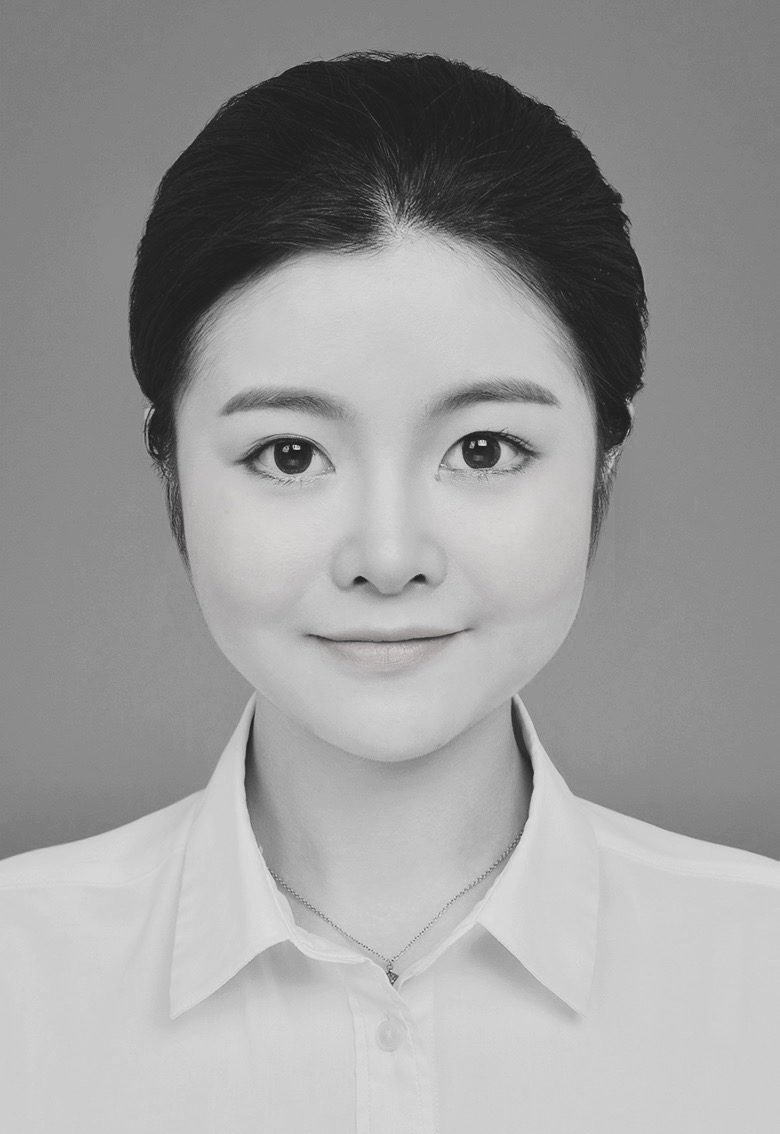 |
Project Officer/Executive Assistant (Part-time)Lindsay Liu is the Project Officer/Executive Assistant at the Institute for Australian and Chinese Arts and Culture. She holds the degrees of Master of Media Practice and Master of Publishing from the University of Sydney. Lindsay has experience working in public service institutions including the Special Broadcasting Service (SBS) and the Australian Embassy in Beijing. | 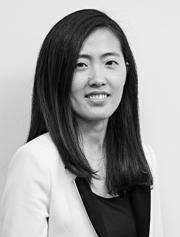 |
